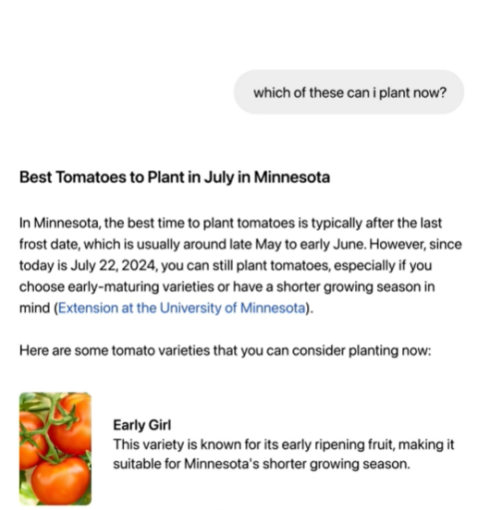
OpenAI has announced a prototype for its upcoming AI search features that are intended to rival existing search engines.
“Getting answers on the web can take a lot of effort, often requiring multiple attempts to get relevant results. We believe that by enhancing the conversational capabilities of our models with real-time information from the web, finding what you’re looking for can be faster and easier,” OpenAI wrote in a statement.
Google had implemented AI into its search engine several months ago, and now sometimes an AI Overview will show at the top of the results page summarizing information from several sources.
Unlike Google’s offering, SearchGPT will function more like ChatGPT in the sense that it maintains context throughout a conversation, and users will also be able to ask follow-up questions to their search.
Similar to Google’s AI Overview, SearchGPT will provide links to sources when it provides its responses, allowing users to verify the validity of the source or click through the link for more information.
Google’s AI Overview had a lot of criticism at launch for sometimes giving incorrect information in its summaries, such as telling people to eat one rock per day to ease digestion or put glue on pizza, which was traced back to a joke comment on a Reddit thread. Google has said it’s made improvements to the system following some of these instances. “We’ve learned a lot over the past 25 years about how to build and maintain a high-quality search experience, including how to learn from these errors to make Search better for everyone. We’ll keep improving when and how we show AI Overviews and strengthening our protections, including for edge cases, and we’re very grateful for the ongoing feedback,” they said in a statement.
OpenAI said it is partnering with select publishers and creators for SearchGPT, such as The Atlantic, so that it can surface high-quality content in its responses.
“SearchGPT is designed to help users connect with publishers by prominently citing and linking to them in searches. Responses have clear, in-line, named attribution and links so users know where information is coming from and can quickly engage with even more results in a sidebar with source links,” OpenAI wrote.
The prototype will only be available temporarily to a small group of people, and the feedback from the initial users will be used to incorporate these search features into ChatGPT sometime down the line.
Improving model safety with Rule-Based Rewards
In addition, OpenAI has been working on improving the safety of its models, and has developed a new method for doing so that utilizes Rule-Based Rewards (RBRs).
Human feedback has typically been used to develop reward models that encourage desired behaviors, but collecting this feedback can be time-consuming and can become outdated if safety policies change.
As an alternative, OpenAI began experimenting with RBRs, which use step-by-step rules to evaluate how well a model is meeting safety standards. This method delivers comparable safety performance to the human feedback method while also cutting down on the number of times a safe request was incorrectly refused, OpenAI explained.
Some of the limitations of RBRs are that they don’t work as well for subjective tasks, like writing, and shifting safety checks from humans to AI can reduce human oversight and amplify biases. As such, the company recommends anyone experimenting with RBRs ensure that they are carefully designed and consider using a combined approach that uses both RBRs and human feedback.
According to OpenAI, it has used this method in the training of GPT-4 and will use it in models going forward as well.
You may also like…
Coalition for Secure AI forms to address security risks of AI
The impact of AI regulation on R&D
Microsoft gives up its observer seat on OpenAI’s board






